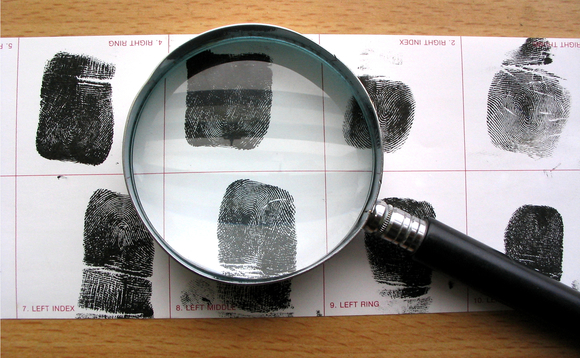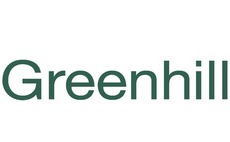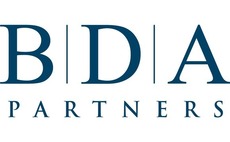
China due diligence: Playing it safe

The catalogue of deals gone bad in China is long and undistinguished. Private equity firms, and the third-party advisors that work with them, are rethinking their approach to due diligence
Initially, Caterpillar's $700 million acquisition of Chinese mining equipment firm Zhengzhou Siwei Mechanical & Electrical Manufacturing did not ring any alarm bells. The US company had hired Deloitte and Ernst & Young to conduct an audit and the books seemed to be in order. Then there was the comforting presence of Emory Williams, a respected entrepreneur and former head of the American Chamber of Commerce in Hong Kong, on Siwei's board.
Contrary to appearances, however, all was far from well and Caterpillar investors were shocked to learn in January that the company had uncovered a "deliberate, multi-year, coordinated accounting misconduct" at Siwei. This revelation led to a $580 million write down of the Chinese firm by Caterpillar.
Experts have since pointed out several areas where the due diligence had in fact been far from thorough.
"We spoke to some people close to the deal and we asked whether in all this, anyone had actually laid eyes on Siwei's revenue-generating facilities and the answer was ‘no'," Randal Phillips, managing director Mintz Group, told the AVJ Forum last week. "If they had they would have been able to see just how it just didn't add up - it is a situation that comes up again and again."
Caterpillar's predicament underscores how easily short-sighted domestic due diligence in China can end with an overseas player being exposed to both financial loss and a damaged reputation. The incident adds to a long list of horror stories that have left the foreign investor community feeling far more wary that it did five years ago.
Several private equity firms have been caught up in scandals and now the vast majority of industry participants are looking carefully at how they profile investment targets and tightening up internal processes. As a result, the advisory firms and consultants they employ to conduct supplementary due diligence are doing exaction the same thing. Caution is king.
"One of the reasons due diligence is more rigorous than it was five years ago is the LPs," says VelisariosKattoulas, CEO of Poseidon Research. "There have been a number of blow ups and now they are now holding GPs' feet to fire saying ‘This can't happen again.'"
Official obstacles
A significant obstacle to making these improvements has come in the form of greater restrictions on what information can be made available to those conducting background checks on Chinese companies.
Previously, the the State Administration of Industry and Commerce's (SAIC) business registry archive was a rich resource of corporate information for overseas investors. It offered details of business entities and their shareholders as well as audit reports, share transfer certificates and assets ownership documents.
That changed in June of last year when the Chinese government blocked access and local SAIC registries started demanding either a court order or an authorized request from the company and its legal representative in return for information.
The move is widely understood to have been prompted by the spate of the revelations made in 2010 and 2011 by investors that identified accounting discrepancies at US-listed mid-cap Chinese firms, shorted the stocks and then made their research public. These are the same revelations that led to the call for more stringent due diligence in the first place.
"It was always a challenge anyway to try and piece together paperwork in China," says Mintz Group's Phillips. "This has just made it more difficult to put together the nuts and bolts that you would need to know if you are checking out a firm."
However, some in the industry argue that company filings are just a small part of the picture. Regardless of the ease of sourcing company information, the paper trail will only get you so far. Poseidon's Kattoulas notes that 90% of the value in due diligence is not in documentation but in being able to identify primary sources and gain firsthand knowledge of what is going on inside a company.
"The fact that gaining access to documentation has become more problematic really doesn't make much difference," he says. "You still have to be rigorous and take a broad approach to collecting relevant data."
This view is increasingly held by GPs that have recognized the need for a more comprehensive approach to due diligence n China. "It is very different today in that we no longer just look at industry waves, we look at each company, how it differentiates itself, where it has its niche and whether the modeling makes sense," says Frank Marinaro, managing director at Warburg Pincus.
Warburg Pincus focuses on three areas when it is considering an investment: the integrity of the management, the integrity of the business and the intensity of the due diligence itself.
The first of these starts with checking track record of the management or, in the case of new entrepreneurs, making sure the fund is in a position replace key people - specifically the chief financial officer - if needed.
This can often mean seeking a larger stake in the target company in order to bring about these changes.
But efforts don't stop at those in management; it is also the people they use, whether those people use third-party consultants and how those people can potentially damage your reputation.
"The integrity of management has become much more important, so has the intensity of scrutiny around how the management functions," says Mintz Group's Phillips." For us, it has also become more important that we know the people. You can model out how you think a company is going to do but ultimately you are going to have to rely on management to perform."
Establishing integrity
Warburg Pincus' second area of focus - the integrity of the business - involves ensuring the aims of the company match with the reality; that the contracts are enforceable and factories are working.
Poseidon's Kattoulas recalls his own experience of a company which, according to the financials and management team, has six factories in operation. However, it transpired that two of them were only operation when investors were in town. "They would bus in the workers and flip on the lights and the factory would sort of get into gear," he says.
Scenarios such as these underscore the need for firms to employ so-called "non-traditional" due diligence models in order to detect potential issues that might do not show up in the paperwork. An example of this is a satellite imagery business in the US that takes snapshots of Wal-Mart parking lots, collects data on the number of cars and uses the information to extrapolate predicted sales for that week.
"People are taking advantage of technology and going that extra mile and really drilling down on the companies and management teams they are looking at," says Kattoulas.
Investing the requisite time and resources to carry out comprehensive due diligence is clearly easier for larger industry incumbents in China that have both established processes and sufficient access to propriety deal flow. As such, problem investments have been largely - but not wholly - confined to mid-market players.
"The importance of due diligence and getting all the facts you need is often underappreciated and underfunded," says Warren Hirshhorn, vice chairman with Duff & Phelps. "This is perhaps because it is seen as a cost center rather than a profit center."
This issue is made worse by the fact that these smaller players have been under pressures in recent years to move quickly on deals in a market crowded by renminbi-denominated funds that are able to close deals quickly and informally. These industry participants have been known for paying little attention to due diligence - they didn't know what they are looking for or they didn't care because the plan was to flip the company into an IPO as quickly as possible.
The drop off in renminbi fundraising has arguably eased this competitive pressure. According to AVCJ Research, the number of growth capital and PIPE deals has fallen from their peak in 2011 where around $21.9 billion was invested across 667 transactions, to just $10.3 billion in 273 deals so far in 2013.
Red flags
Most agree that even if firm carries out the best due diligence possible it does not equate to a silver bullet. As such it is important that a GP uses a variety of sources.
Marinaro makes the point that despite the best efforts of advisors, some sources may not be as accurate as they appear. He describes the process as a balancing act, weighing up the risks with the upside, with the likelihood of the downside. If, in the process of due diligence, an advisor does raise a red flag, then the GP must decide whether or not to walk away from a deal.
And not all issues raised are necessarily deal killers. Shortcomings within a management team, for example, can sometimes be rectified by hiring a search firm and parachuting in best-in-class executives or just relying more heavily on third-party advisors. Some obstacles are less easy to overcome, however.
"Political risk can often kill deals and more swiftly than issues around integrity," says Poseidon's Kattoulas, describing how one US investor abandoned a deal when it emerged that a subsidiary of the Chinese company it had been looking at for some time was trading with North Korea.
It is possible to focus more on downside protection without squandering the good opportunities that do exist, and one way to do this is through staged investments. This involves committing capital in tranches, each one conditional on the target company reaching agreed targets or the investor at least becoming more comfortable with how things are progressing. In this way the PE firm is able to hedge its bets.
Nevertheless, Matt Fish, managing director with New Pacific Consulting, reports that many GPs are far more willing to walk away from investments than in the past.
"There have been a number of cases were a client will be looking at something for five months, they engage us for a month and half-way through they see something they just can't stomach," he says. "When I say it is an increasing number, I mean going from almost none, to it happening twice a month."
What is very much for debate is whether this willingness to carry out more thorough due diligence and respond more readily to red flags is a knee-jerk response to horror stories like Caterpillar or evidence of a market that is maturing.
Certainly, the easy pre-IPO money has likely evaporated and this has two consequences for private equity firms. First, they must spend longer in partnership with an entrepreneur before exit. Second, they can't rely on multiples arbitrage for returns so the onus is on adding value to a company through operational improvement. This is much easier to achieve with an entrepreneur who is trustworthy and open to working with active third-party investors.
And then, of course, once they have established their criteria, GPs know through bitter experience what they should be looking for.
"People have their hands around more of the right questions and there is much more industry expertise and than there was five years ago," says Duff & Phelps' Hirschhorn. "The way we went through the reverse mergers issues, the fraud and the resulting damage from that has led to both good and bad outcomes. People are more realistic that they need to check deeper and have an exit plan."
Latest News
Asian GPs slow implementation of ESG policies - survey
Asia-based private equity firms are assigning more dedicated resources to environment, social, and governance (ESG) programmes, but policy changes have slowed in the past 12 months, in part due to concerns raised internally and by LPs, according to a...
Singapore fintech start-up LXA gets $10m seed round
New Enterprise Associates (NEA) has led a USD 10m seed round for Singapore’s LXA, a financial technology start-up launched by a former Asia senior executive at The Blackstone Group.
India's InCred announces $60m round, claims unicorn status
Indian non-bank lender InCred Financial Services said it has received INR 5bn (USD 60m) at a valuation of at least USD 1bn from unnamed investors including “a global private equity fund.”
Insight leads $50m round for Australia's Roller
Insight Partners has led a USD 50m round for Australia’s Roller, a venue management software provider specializing in family fun parks.







